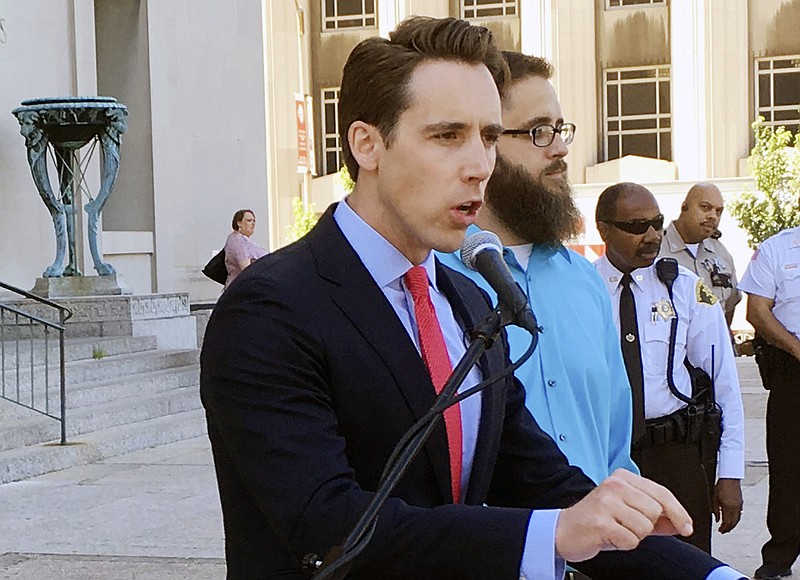New Boone County Clerk Taylor Burks said this week he's reviewing a constituent's request to investigate Attorney General Josh Hawley's voting in the Aug. 8 special election.
"I am reviewing your request to determine the appropriate action required of my office," Burks told Columbia resident Margaret Booker. "Rest assured that upholding Missouri election law is my highest priority as Boone County's local election authority."
Gov. Eric Greitens named Burks, a Republican, to succeed long-time clerk Wendy Noren, a Democrat, after she resigned, citing health reasons.
Last week's special election was Burks' first as Boone County's clerk.
In her email, Booker cited in Tuesday's News Tribune story that Hawley voted in the special election from his long-time residence on East Missouri 163, between Ashland and Columbia.
However, since Hawley was sworn-in Jan. 9 as Missouri's newest attorney general, the state law that defines his job and his duties includes a requirement "the attorney general shall reside at the seat of government and keep his office in the supreme court building."
Missouri's Constitution defines the seat of government as Jefferson City.
In her email, Booker noted Hawley's comments earlier this year that he was getting a two-bedroom apartment in Jefferson City and he "claimed that his true and legal residence was in Jefferson City, Missouri, in Cole County."
In asking Burks to investigate, Booker noted: "As you know, it is an election offense under Missouri state law to cast a ballot in a jurisdiction in which that person is not entitled to vote," and she cited the prosecution several years ago of two Jackson County residents "for voting in a House district race while maintaining a residence outside of the district's boundaries."
Booker told Burks: "It is my hope that your findings will settle the matter of the Attorney General's state law mandated residency requirement once and for all, and that voting rights are clear and aligned, accordingly. Only then will the integrity of our elections be protected and the ethics of our elections officials and state office holders be maintained at the high level we deserve."
Booker's request for an investigation - and Burks' reply to her - were first reported by the Missouri Scout, a private, online, subscription-only news service.
Burks confirmed the information in the Scout story, providing the News Tribune with copies of Booker's email and his response to her.
He did not say how long his office would take to review Booker's request.
Hawley said in February he planned to stay in the Jefferson City apartment "as needed to make it a true personal residence (for legal purposes)."
However, he emphasized, his primary home would remain in Boone County.
The Associated Press noted last week that Deputy Attorney General Michael Martinich-Sauter in January provided Hawley with a legal analysis contending Hawley is complying with state law because his home is within "ordinary commuting distance" of Jefferson City.
Martinich-Sauter's analysis compared Hawley's residency status to state employees who commute to the Capitol Complex from other areas of Jefferson City or Cole County.
State law does not dictate where most state employees live.
The attorney general is the only one of Missouri's six statewide elected officeholders who is required legally to reside inside Jefferson City's corporate limits.

